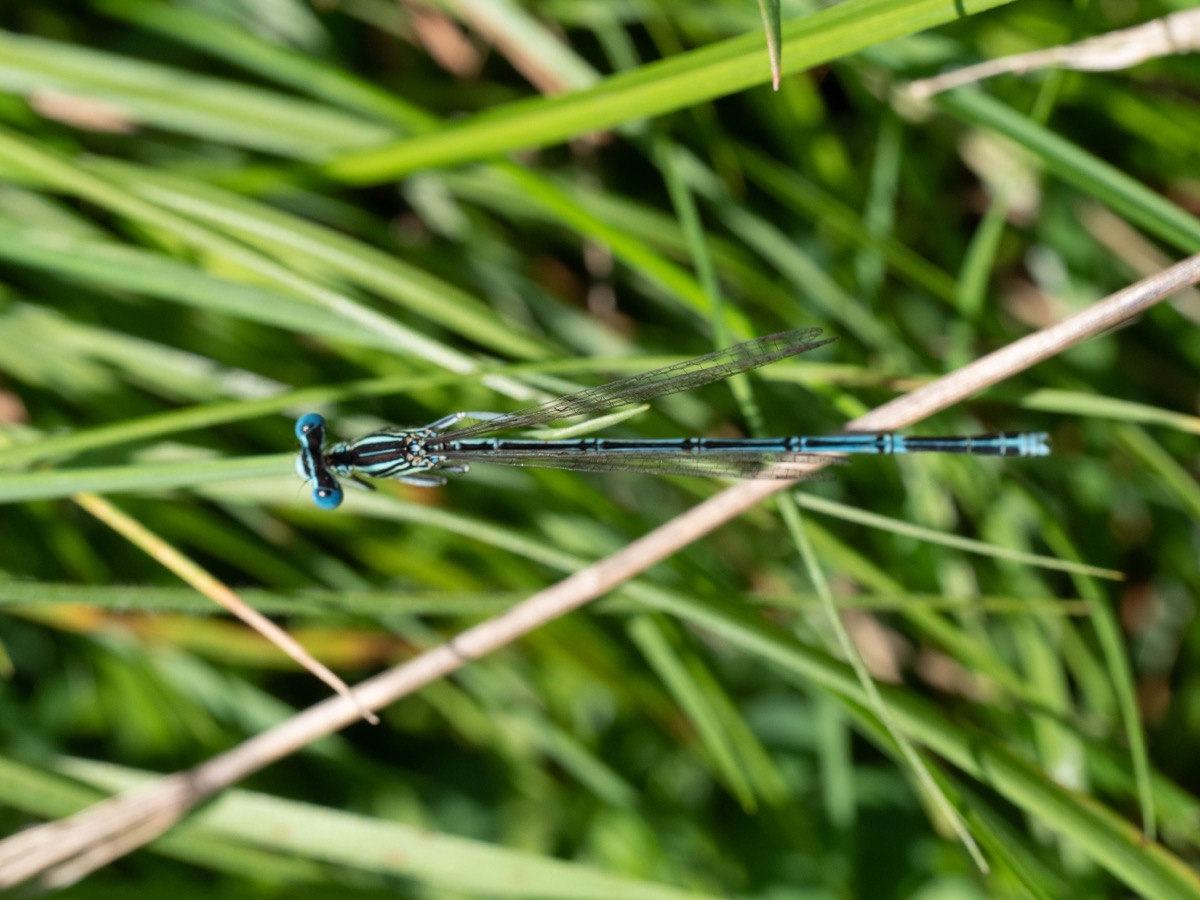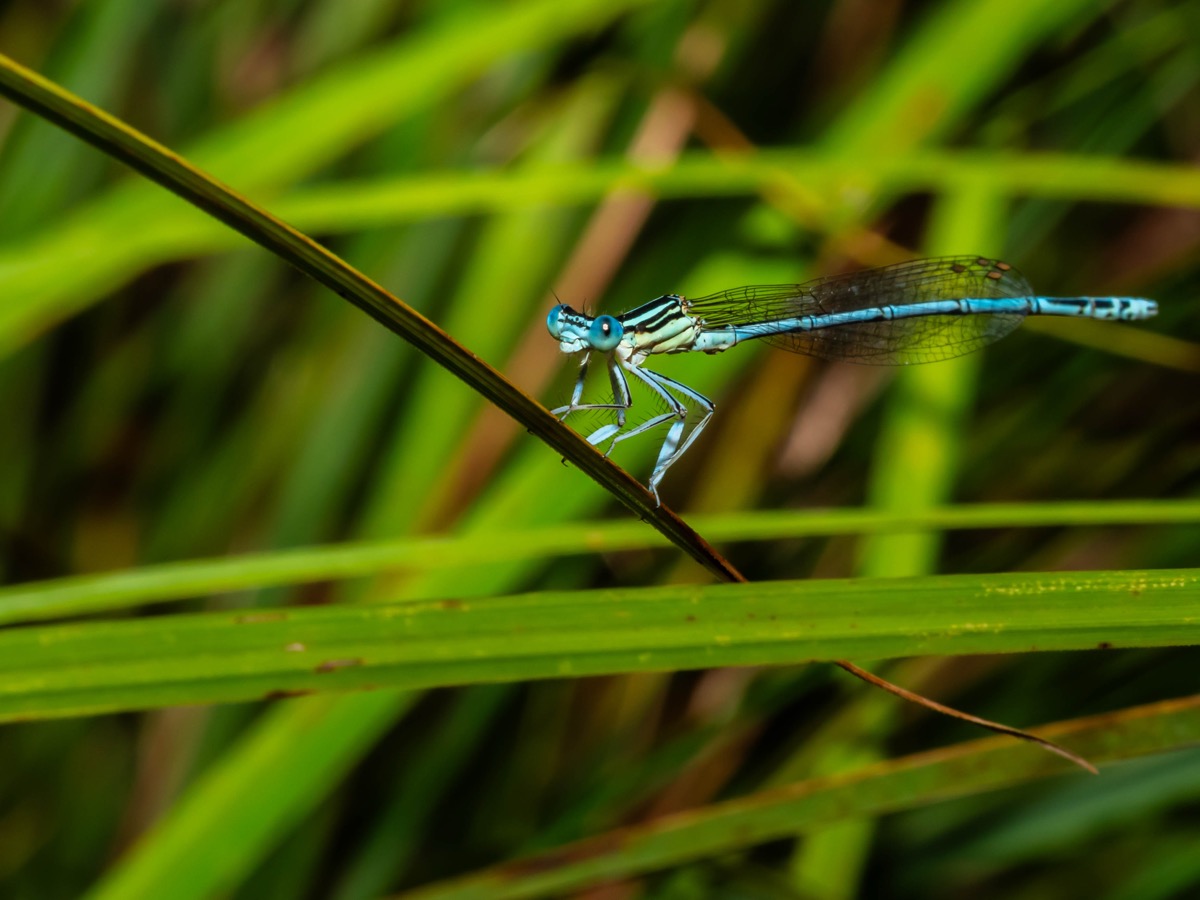Characteristics
- Medium size (35–45 mm)
- Slender body, generally pale (blue, beige, grey, white)
- Males of some species have enlarged, flattened, whitish front tibiae
- Wings folded at rest, fully transparent
- Slow and graceful flight, often low over vegetation
Habitat
Platycnemididae are found near:
- Streams, slow rivers or canals, with good oxygenation
- Vegetated banks, often partially wooded
- Shallow areas, sunny or partly shaded
- Less common in stagnant habitats
Biology
- Diurnal activity, mostly during the peak season (late spring to summer)
- Territorial males, perched on grasses or stones
- Typical odonate mating, followed by tandem oviposition
- Eggs laid on submerged plants or wet substrates
- Slender aquatic larvae, sensitive to water quality
Representative Genus
- Platycnemis – Type genus in Europe
- Platycnemis pennipes: pale color (blue-grey), males have very enlarged white tibiae
- Platycnemis acutipennis: more orange-tinted, mainly found in southwestern Europe
Special Features
- Males use their enlarged tibiae in visual displays and as intraspecific signals
- Often localized species, dependent on good water quality
- Identification is relatively easy based on tibiae shape and coloration

